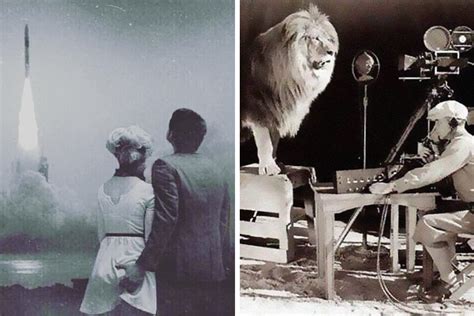
Grooms are increasingly exhibiting demanding and entitled behavior, mirroring the infamous “bridezilla” phenomenon, with 16 instances of such conduct nearly derailing weddings, according to firsthand accounts shared online. The outrageous requests and controlling actions, dubbed “groomzilla” behavior, ranged from dictating bridesmaid appearances to micromanaging vendor choices, causing significant stress and conflict for partners, wedding parties, and even vendors.
The trend, highlighted in anecdotes gathered from various online forums, showcases a growing expectation among some grooms to exert excessive control over every aspect of their weddings, often disregarding the feelings and input of their fiancées. These behaviors, as documented in the shared stories, suggest a deeper issue of entitlement and a lack of consideration for the collaborative nature of wedding planning.
One recounted instance detailed a groom’s insistence that his fiancée dye her hair to better match his aesthetic preferences for the wedding photos. Another groom allegedly demanded that a bridesmaid with a visible tattoo cover it up, despite it being a meaningful piece of personal expression. Several stories revolved around grooms unilaterally changing crucial wedding details, such as the menu or the music playlist, without consulting their partners.
The anecdotes, while individually unique, share a common thread of grooms prioritizing their personal vision of the “perfect” wedding over the happiness and comfort of their partners and guests. This behavior, according to relationship experts, can be indicative of underlying issues such as insecurity, control issues, or a fundamental misunderstanding of the partnership dynamic inherent in marriage.
“It’s about a power imbalance,” explains Dr. Emily Carter, a relationship therapist specializing in pre-marital counseling. “When one partner feels the need to control every aspect of the wedding, it often stems from a deeper anxiety about the future and a need to feel in charge. It’s crucial to address these underlying issues before walking down the aisle.”
The financial implications of such demanding behavior can also be significant. Several stories involved grooms pressuring their fiancées to spend beyond their budget on extravagant details, leading to unnecessary debt and stress. One particularly egregious example involved a groom who insisted on a destination wedding at a luxury resort, despite his fiancée’s concerns about the cost. When she voiced her reservations, he reportedly accused her of not being supportive of his “dream wedding.”
Furthermore, the “groomzilla” phenomenon isn’t limited to aesthetic preferences or financial decisions. Some stories detailed instances of grooms attempting to control the guest list, disinviting friends or family members whom they deemed “unsuitable” for their wedding. In one case, a groom allegedly uninvited his fiancée’s best friend because he felt threatened by their close relationship.
The prevalence of these anecdotes raises questions about societal expectations surrounding weddings and the roles that men and women are expected to play. While weddings are often portrayed as primarily the bride’s domain, the emergence of the “groomzilla” suggests a pushback against this traditional narrative, albeit often in a problematic and controlling manner.
“There’s a growing pressure on men to be more involved in wedding planning,” says Sarah Miller, a wedding planner with over 15 years of experience. “However, some men misinterpret involvement as control. They feel the need to assert their dominance and create a wedding that reflects their personal taste, often at the expense of their partner’s happiness.”
The impact of “groomzilla” behavior can extend beyond the wedding day itself. The stress and conflict generated during the planning process can strain the relationship, potentially leading to resentment and long-term damage. “It’s a red flag,” warns Dr. Carter. “If you’re experiencing this level of control and disrespect during wedding planning, it’s a sign that there are fundamental issues in your relationship that need to be addressed before you commit to marriage.”
The shared stories serve as a cautionary tale, highlighting the importance of communication, compromise, and mutual respect in wedding planning. They also underscore the need for couples to address any underlying power imbalances or control issues before embarking on the journey of marriage.
Here are some of the specific examples detailed in the online accounts:
- The Hair Dye Demand: A groom insisted his fiancée dye her hair a specific shade to match his vision for the wedding photos, disregarding her personal preferences and potentially damaging her hair.
- The Tattoo Cover-Up: A groom demanded that a bridesmaid cover up a visible tattoo, despite it being a meaningful piece of personal expression and causing her discomfort.
- The Unilateral Menu Change: A groom changed the entire wedding menu without consulting his fiancée, catering only to his own tastes and dietary preferences.
- The Music Playlist Takeover: A groom hijacked the wedding playlist, replacing songs that were meaningful to his fiancée with his own preferred genre.
- The Guest List Purge: A groom disinvited his fiancée’s close friends or family members because he deemed them “unsuitable” for his wedding.
- The Destination Wedding Dictatorship: A groom insisted on a destination wedding at a luxury resort, despite his fiancée’s concerns about the cost and her preference for a local celebration.
- The Bridesmaid Dress Code: One groom criticized the dresses chosen by his fiancée for her bridesmaids and demanded they wear dresses that HE preferred.
- The Vendor Veto: A groom vetoed a vendor his fiancée had chosen because he didn’t like their style or personality.
- The Honeymoon Hijacking: A groom planned the entire honeymoon without consulting his fiancée, choosing a destination and activities that she had no interest in.
- The Choreographed First Dance: A groom insisted on a highly choreographed first dance, despite his fiancée’s discomfort with public performance.
- The Social Media Ban: A groom forbade guests from posting photos or videos of the wedding on social media, citing concerns about privacy and aesthetics.
- The Gift Registry Rules: A groom dictated what items should be included on the gift registry, prioritizing items that he wanted over items that his fiancée needed.
- The Seating Chart Shuffle: A groom rearranged the seating chart without consulting his fiancée, potentially causing conflict and discomfort among guests.
- The Pre-Wedding Diet: A groom pressured his fiancée to lose weight before the wedding, making her feel insecure and body-shamed.
- The Bachelor Party Debacle: A groom planned an excessively wild and inappropriate bachelor party, disregarding his fiancée’s feelings and potentially jeopardizing their relationship.
- The Wedding Speech Control: A groom dictated what his best man could and could not say in his wedding speech, censoring potentially embarrassing or humorous anecdotes.
These examples, while extreme, illustrate the range of controlling and entitled behaviors that can manifest in “groomzilla” scenarios. They serve as a reminder that wedding planning should be a collaborative process based on mutual respect and consideration.
The phenomenon also highlights the evolving roles and expectations surrounding modern relationships. As traditional gender roles continue to blur, couples are increasingly navigating uncharted territory when it comes to wedding planning. This can lead to conflict and misunderstandings, particularly if one partner adheres to outdated or unrealistic expectations.
“It’s important for couples to have open and honest conversations about their expectations for the wedding,” says Miller. “They need to discuss their budget, their priorities, and their individual visions for the day. Compromise is key, and both partners need to be willing to make sacrifices in order to create a wedding that reflects their shared values.”
Furthermore, couples should be aware of the potential warning signs of “groomzilla” behavior. These include:
- Controlling behavior: A persistent need to control every aspect of the wedding planning process, often disregarding the input of their partner.
- Lack of empathy: An inability to understand or appreciate their partner’s feelings and perspectives.
- Entitlement: A belief that they are entitled to have their way, regardless of the impact on others.
- Inflexibility: An unwillingness to compromise or adapt to changing circumstances.
- Disrespectful communication: Using harsh or critical language, belittling their partner’s opinions, or dismissing their concerns.
If these warning signs are present, it’s crucial to address them early on. Couples may benefit from seeking pre-marital counseling to help them navigate these challenges and develop healthier communication patterns.
The “groomzilla” phenomenon is a complex issue with no easy solutions. However, by fostering open communication, mutual respect, and a willingness to compromise, couples can avoid falling victim to these destructive behaviors and create a wedding that is truly a celebration of their love and commitment.
In conclusion, the rise of the “groomzilla” highlights the importance of open communication, mutual respect, and realistic expectations in wedding planning. The shared anecdotes serve as a cautionary tale, reminding couples that the wedding day is just the beginning of their journey together and that a healthy relationship requires collaboration, compromise, and a willingness to prioritize each other’s happiness above all else. Failing to do so could create irreparable damage to the relationship, beginning what should be the most joyous occasion with negative impacts.
Frequently Asked Questions (FAQ):
1. What exactly is a “groomzilla,” and how does it differ from simply being an involved groom?
A “groomzilla” is a groom who exhibits excessively demanding, controlling, and often entitled behavior during the wedding planning process, similar to the stereotype of a “bridezilla.” The key difference between an involved groom and a groomzilla lies in the degree of control and consideration for their partner’s feelings and opinions. An involved groom actively participates in planning and decision-making, respecting their partner’s input and collaborating to create a shared vision for the wedding. A groomzilla, on the other hand, seeks to dominate the process, prioritizing their own preferences and disregarding their partner’s wishes, often leading to conflict and stress. According to relationship experts, this behavior often stems from deeper issues like insecurity and need for control.
2. What are some common signs that a groom is exhibiting “groomzilla” tendencies?
Several warning signs can indicate that a groom is exhibiting groomzilla tendencies. These include: a persistent need to control every aspect of the wedding planning process, disregarding the input of their partner; a lack of empathy or inability to understand or appreciate their partner’s feelings and perspectives; a sense of entitlement, believing they are entitled to have their way regardless of the impact on others; inflexibility or unwillingness to compromise or adapt to changing circumstances; and disrespectful communication, such as using harsh or critical language, belittling their partner’s opinions, or dismissing their concerns. Other signs can include making unilateral decisions without consulting their partner, pressuring them to spend beyond their budget, and attempting to control the guest list or other aspects of the wedding that should be collaborative decisions.
3. Why is the “groomzilla” phenomenon becoming more prevalent now?
Several factors may contribute to the increasing prevalence of the “groomzilla” phenomenon. Firstly, traditional gender roles are evolving, and men are increasingly expected to be more involved in wedding planning. This can lead to some men misinterpreting involvement as control, feeling pressured to assert their dominance and create a wedding that reflects their personal taste. Secondly, the wedding industry is becoming increasingly commercialized, with social media and popular culture often promoting unrealistic and extravagant wedding ideals. This can create pressure on both partners to achieve the “perfect” wedding, leading to heightened stress and conflict. Thirdly, underlying issues such as insecurity, control issues, or a lack of communication skills can manifest during the wedding planning process, exacerbating tensions and contributing to groomzilla behavior. Finally, more people are becoming aware of this behavior and naming it, allowing for greater public discussion and recognition.
4. How can couples prevent “groomzilla” behavior from derailing their wedding plans and relationship?
Couples can take several steps to prevent groomzilla behavior from derailing their wedding plans and relationship. Open and honest communication is essential. Couples should discuss their expectations, priorities, and individual visions for the wedding early on in the planning process. They should also establish a budget and stick to it, avoiding the temptation to overspend on extravagant details. Compromise is key; both partners need to be willing to make sacrifices and find solutions that work for both of them. It’s also crucial to be respectful of each other’s feelings and opinions, avoiding harsh or critical language. If conflict arises, couples should take a step back, cool down, and try to communicate calmly and constructively. Seeking pre-marital counseling can also be beneficial, providing couples with tools and strategies for navigating challenging conversations and resolving conflict in a healthy way. Dividing tasks and responsibilities fairly can prevent one person from feeling overwhelmed or controlling. It’s crucial to remember that the wedding is just one day, and the focus should be on building a strong and lasting marriage.
5. What are the potential long-term consequences of “groomzilla” behavior on a relationship?
The long-term consequences of groomzilla behavior on a relationship can be significant and damaging. The stress and conflict generated during the wedding planning process can create resentment and strain the relationship, potentially leading to long-term damage. The partner subjected to groomzilla behavior may feel unheard, undervalued, and disrespected, leading to feelings of anger, resentment, and emotional distance. The experience can also erode trust and intimacy in the relationship. In some cases, groomzilla behavior can be a red flag for deeper issues such as control issues, emotional abuse, or a lack of empathy. If these issues are not addressed, they can continue to manifest in other areas of the relationship, leading to further conflict and potentially even separation or divorce. Even if the couple stays together, the negative memories and emotional scars from the wedding planning process can linger, impacting the overall quality and happiness of the relationship. Therefore, addressing groomzilla behavior early on is crucial to protecting the long-term health and well-being of the relationship. If these behaviors persist or escalate, seeking professional help from a therapist or counselor may be necessary to address the underlying issues and improve communication and conflict resolution skills.









